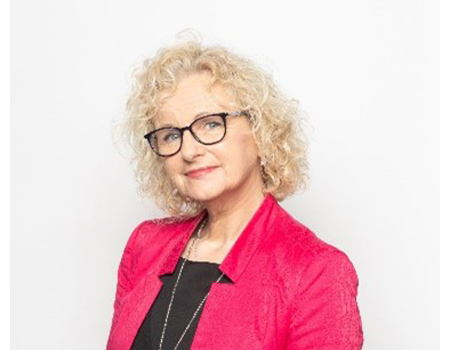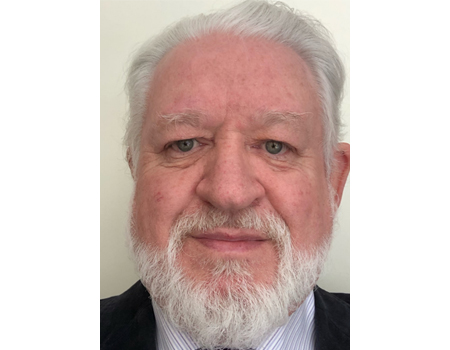Join a host of leading tax, law, AML and reporting standards experts for our Dublin Conference on 30 March.
10:00-16:40
Join AIA and leading tax, law, AML and reporting standards experts for our Dublin Conference on 30 March 2023.
The conference will provide an opportunity to network with fellow accounting and finance professionals.
Attendance at the event will provide you with 7 CPD units.
| 10:00 - 10:20 | Registration |
| 10:20 - 10:30 | AIA Update - Sharon Gorman |
|
10:30 - 11:40
|
Session 1
|
Triennial Review of FRS102 and FRS105 - Robert Kirk, Ulster University In December 2022 the FRC published their latest Exposure Draft FRED 82 which will fundamentally change some aspects of both FRS 102 and 105. In particular the abolition of the operating lease for lessee and the introduction of a single lease accounting approach will require companies to carefully look at their existing lease contracts. The FRC are introducing the five step model to revenue recognition which will certainly impact on companies that bunch a number of distinct goods and services into the one contract at present. These may have to be separated out and income recorded at different stages on each aspect of the contract. There are also important changes being implemented in accounting for business combinations as well a complete revision of Section 2 Concepts and pervasive principles following the major changes to the international conceptual framework. The presentation will provide a brief review of all the major changes so that participants can plan ahead their strategy for dealing with the changes likely to be implemented from 2015. |
|
11:45 - 12:55
|
Session 2
|
AML Update: An insight into how FIU Ireland operates - Clodagh White, FIU Ireland The presentation will cover the following topics and will provide an insight into how FIU Ireland operates from a transnational perspective:
There will be a specific focus on the electronic submission of Suspicious Transaction Reports (STRs) to both FIU Ireland and the Revenue Commissioners using the IT Software solution, goAML and the importance of submitting quality reports with sufficient details to allow for operational and strategic analysis to be conducted. Guidance will be given on how to submit such reports. An insight will be given into how operational & strategic analysis is conducted by FIU Ireland resulting in the dissemination of STR-related intelligence to An Garda Síochána and Criminal Assets Bureau (CAB) and to other worldwide FIUs and the value gleaned from such financial intelligence. Current money laundering trends & typologies will be shared, emphasising the increasing trend in recent years of the laundering of the proceeds of financial crime through the financial and non-financial sectors. A brief overview will be given of terrorist financing (TF), the role financial intelligence plays & the challenges faced with TF investigations. |
| 13:00 - 14:00 | Lunch |
|
14:00 - 15:10
|
Session 3
|
Developments in the Digitisation of the Irish Tax System & The Role of Technology in Tax Compliance - Sandra Gleeson, Grant Thornton Digital transformation in the Irish tax system means accountants today are required to act as trusted enablers of technology advancement. An accountant’s job no longer looks like endless paper files, receipts, ledger books and other endless manual processes. Most businesses today use some form of accounting software. Accounting Software captures the business data from invoices, bank transactions, and timesheets and allows accountants to report on financial performance and position. However, businesses fail to use the automation and data analysis features to their full potential. Due to the rapid evolvement of technology in the Irish tax system, businesses find it difficult to keep up with the latest technological advancements and decide which technologies to adopt, which systems to integrate and how. In this session, we will discuss how we can actively pursue opportunities for technology advancement whilst safeguarding against some of the challenges. Specifically, we will focus on a number of key themes:
Revenue’s technology refresh programme to ensures that they have the IT platform and capability to enable their key business programmes and to modernise further taxes and duties with a focus on process automation, digitalistion and personalisation of services. We will look some of the recent advancements and a brief overview of how that impacts on Irish accountants. |
|
15:15 - 16:20
|
Session 4
|
The Corporate Enforcement Authority - Tom Higgins, Corporate Enforcement Authority The presentation will cover the following topic areas:
|
| 16:20 - 16:40 | Networking and Close |

Robert Kirk BSc (Econ) FCA CPA trained in Belfast with Price Waterhouse & Co, and subsequently spent two years in industry and four further years in practice. He is currently Professor of Financial Reporting in the School of Accounting at the University of Ulster and has been lecturing on Accounting Standards since 1985.
He has published 18 books and numerous articles in both academic and professional journals, including four editions of Accounting Standards in Depth; UK Accounting Standards: A Quick Reference Guide; and International Reporting Standards in Depth Volume 1 Theory and Practice and Volume 2 Solutions.

Clodagh White is a Detective Sergeant in FIU Ireland which is part of the Garda National Economic Crime Bureau. She is currently working in their International Relations and Policy Unit and has 22 years’ experience working in the area of AML/CTF – both conducting money laundering investigations and as a supervisor in FIU Ireland. Prior to joining An Garda Síochána in 1992, she obtained a Bachelor of Commerce Degree and recently completed an International Diploma in Anti Money Laundering (ICA).

Sandra is Director of Tax Digital Transformation, Training & Development in Grant Thornton. Sandra is part of the Senior Management Team in Grant Thornton’s Tax department, working closely with Partners to drive development and implementation of strategic growth. Sandra has led the development of strategic and operational initiatives focusing on addressing the challenges of rapid technological change. This includes the innovative use of technology to enable informed decision making using insights and analytics.
In addition, Sandra leads the Tax Technology Team in Grant Thornton. The Tax Technology Team have engaged with clients in managing their tax risk via improvements in technology. Sandra has also implemented a comprehensive training programme in Grant Thornton to accelerate tax learning and to create a collaborative knowledge-sharing environment.

Tom Higgins is a Fellow of Chartered Accountants Ireland and former Chairman of the Leinster Society of Chartered Accountants. Tom previously worked in the financial services sector from 1976 to 2016. Initially Tom worked in retail banking with Northern/ National Irish Bank until 2000, followed by a four year period as one of Heads of Internal Audit with the Irish Life & Permanent Group.
In 2004 he joined AccBank/ Rabobank International as the Head of internal Audit for Ireland. In 2009 he was appointed the Head of Internal Audit for Rabobank International North America Based in New York. In 2017 Tom joined the Corporate Enforcement Authority (previously the ODCE) as a Senior Forensic accountant.

The hotel is located near the Aviva Stadium and Lansdowne Road DART station (rail) Complementary Parking is on a first come basis. The conference will be held on the first floor of the hotel - access by stairs only. Sandymount Hotel, Herbert Road, Sandymount, Dublin 4, DO4 VN88

Sharon is accountable for the professional development of AIA members; specifically delivering a programme of continuing professional development for members and ensuring compliance with CPD requirements.